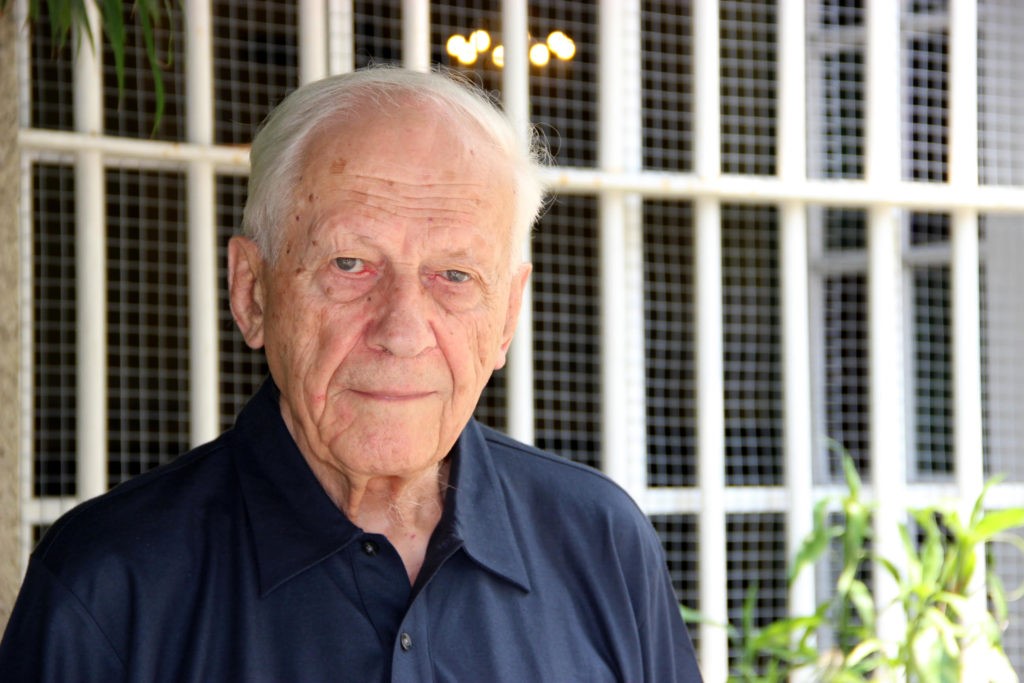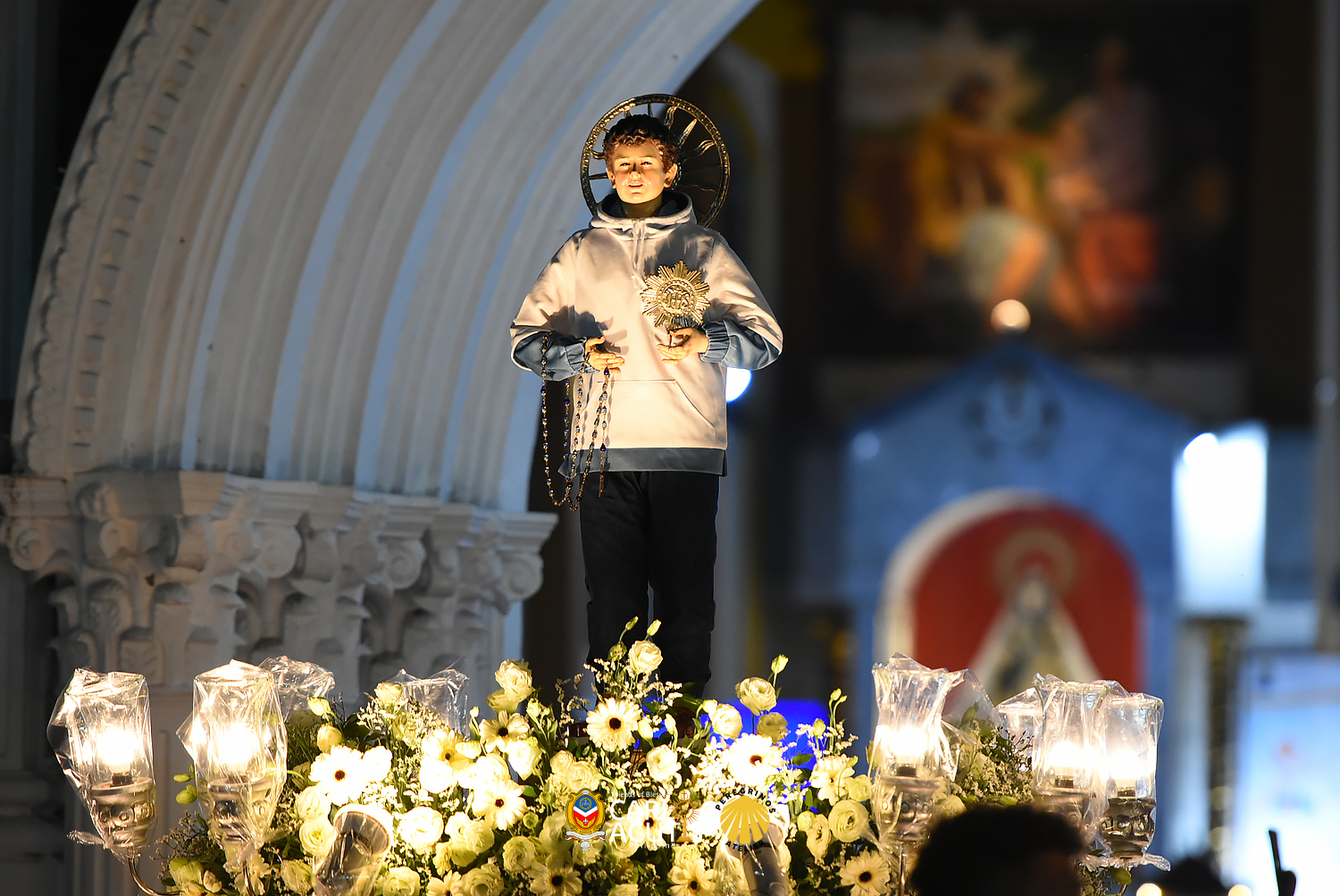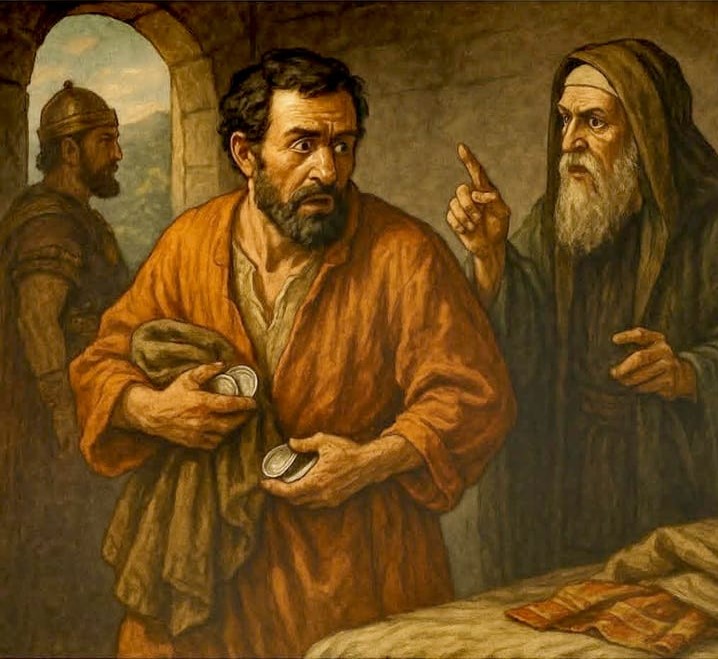– Marco Carvalho
The vocation to become of service to God was felt very early in his life, but it was only in the post-War years that Yves Camus realized that the Society of Jesus was the right path for him. A Second World War survivor, Father Camus joined the Jesuits on the 1st of October 1949, the very same day the People’s Republic of China was founded. And China – and the Chinese religious traditions – ultimately became a widespread, defining subject to which he devoted more than half a century. A contributor to the Sino-French Great Dictionary and a founder of the Macau Ricci Institute, Yves Camus celebrated in July seventy years of surrender to the Society of Jesus. Father Camus spoke to O Clarim about his life and times.
You have celebrated last July a very meaningful moment, seventy years in the Society of Jesus. If we go back seventy years, to 1949, was it something that you could foretell? Did you imagine that you would be giving all your life to the Society of Jesus and celebrating this Jubilee?
Frankly speaking, I was never worried or attracted to celebrate any anniversary, particularly this anniversary, which I didn’t foresee. I was not waiting for it, despite the fact that I am not surprised to have to passed through that sort of ceremonies. I am not attracted to this ceremony as such and even birthday ceremonies, we didn’t usually celebrate them in my family. We celebrated more the feast days than birthdays. Since I am called Yves, I remember for instance, as a small part of the story, the day we had to flee at the beginning of the Second World War the invasion of the German armies. And I remember it because it was on the day of my feast day: 19th May 1940. It is through this feast day that I remember when we started to flee. As far as my vocation started, it was at the end of my secondary education, after graduating from the Jesuit College in which I was educated in Amiens, in the northern part of France. I studied in a very old Jesuit institution in the city of Amiens. I studied there during the Second World War. I still remember quite well that in 1940 I had to enter the primary seventh grade in Amiens in a building that was destroyed during the War. Later on, we moved to different places in Amiens, particularly as the liberation days at the end of the Second World War, in 1945, drew nearer. This is part of my history as far as education is concerned. Things didn’t improve immediately. I finished my secondary education in 1949. As far as the local situation – the Chinese situation – is concerned, there’s a curiosity: I entered the Seminary on the first of October 1949.
When did you decide that the Jesuits were the best option for you? Or was it a belief that was built step-by-step?
You may say that… Step-by-step. I felt this vocation present in my life very early, but the choice to become a Jesuit was only discerned and decided at the end of my secondary education, perhaps though not a suspected, but accepted influence of some Jesuit that have been very influential in my life, particularly in the latest year of my education, in Philosophy, when I met a man of a great influence in my life. We had long conversations and in his old age I visited him several times. But it was not only this particular person. Some of the teachers, when I was in the lower years of my education, also have been very influential by the way they dealt with us. They were good educators, certainly.
As you have mentioned, you have lived first hand the horrors of the Second World War. You had to flee, to take refuge. How did that influence your path? How did that influence your choice to become a Jesuit?
The war as such, the suffering or the inconvenience caused by the war, were not a decisive influence. The German Army occupied Amiens. I remember that my grandmother had to struggle to get some food. She was delighted to tell at the end of each meal, “This is another meal that the German Army will not eat.” But, apart from that, we did not suffer much. Maybe my grandmother and my mother endured a lot. My father died very early. By a Chinese contrast, my family could be said to be a large family due to the fact that my mother, after the death of my father, went back to her own family and she was the eldest of nine brothers, six boys and two other sisters. So, the war as such, had no influence in my vocation. No. As such, it didn’t. On the contrary: my mentor, on the last year of my education, had a great influence on me by the way that he was also very keen in reflecting about the religious traditions in the world or the religions traditions as such, as they are and how influential these religious traditions have been in the world. I have been attracted to that, insofar that it seemed to me that Christianity is known in the world by the way it has been understood earlier in the western part of the world. Very early in my life I was just wondering if it had been another way. What would have happened if the Incarnation had happened somewhere else in the world. It could have been also in Central Asia, for instance. It could have been… I do not know in what country, but – as a matter of fact – it was designed to be at the juncture of East and West, what we call now, in a western way of expression, the Near East of the West. It has been a crossroad of a few civilizations: the early civilizations of the Middle East, later the civilizations of Greece and Rome and later the influential civilization of Islam, not to speak about the Roman Empire contact with China through Persia and also the central part of Asia. This is well known by those who have a solid knowledge of world history. Nevertheless, the question remains: what would have developed in the hearts and minds of the people if it had been other way?
Did you manage to find any suitable hypothesis? You have been studying Chinese culture, Chinese tradition and Chinese spirituality. There are some points of contact between Buddhism and Christianity, but would it have been different if, as you were mentioning, Jesus would have been incarnated in China, in Nepal or somewhere else?
I would dare to say that the answers to that question are not prophetic, but they have to be explored. They have to be tested, they have to be experienced and they have to be lived properly. And that is why the recent insistence – by recent, I mean something that happened twenty years or so – by the Second Vatican Council, not immediately after it but a few years later, on the dialogue between members of different religious traditions. It is important not only to avoid or to quench the conflicts between different nations or different civilizations. Well, civilizations are not at war, but some nations are or have been at war and they have been at war not necessarily influenced by their own religious traditions. There had been also in the West quite a few people of Christian tradition, Christian theologians who were fostering this encounter and mutual understanding and the dialogue of different representatives of religious traditions with the intention to help build peace in the world. There had been a kind of motto that there would be no peace in the world unless there is peace amongst the different religious traditions and that is why any representative of the different religious traditions has a shared responsibility to be, even in his writings, at peace with the other religious traditions and to make himself understood and to accept also that he has too learn from another traditions. Not all religious traditions are the same, but all of them are looking the same way. What is the end value of human life? Is it finite? Or its value is infinite?
You said that you came from a large family. Were there were already any religious figures in your family? How was your decision accepted by your mother and by your family?
Yes, for the last three generations there has been a priest in our family. Probably the elder brother of my mother’s grandfather has been a priest. Amongst her six brothers, one of them, got his own sacerdotal priestly vocation at the beginning of the War . It came in the middle of a war crisis. He was fleeing the invasion of France by the German Army through the English Channel on a small boat, with around fifty other soldiers. He was a tank officer, but he was fleeing. Due to the danger of the situation – fifty people on a small boat of twelve meters, as he narrated later on to the members of my family – he was in such a dreadful situation that, according to him, he got the invitation or the call to continue his life to help people as a priest. He had also been involved in some peace movement in his own ministry. He didn’t become a Jesuit, but he entered the Dominican Order.
As soon as you became a priest you felt a strong urge to serve in Japan … But you never went there, did you?
That is another part of the story. I asked for 14 years to be sent to Japan, but it was not meant to be. After all those years, it was not a matter of going to Japan anymore. It was not a matter of going to Vietnam anymore because of the events that were unfolding there. It was not a matter of going to Thailand, despite the fact that in Thailand the Jesuits had formed an interdisciplinary team that would fit what I had in mind to do with my life. Since my aim was to study the Buddhist tradition, I consulted three Jesuits who had been missionaries in the Far East: two of them in China and one in Thailand. All of them were involved in that sort of intercultural work. Two of them had been the initiators of the Great Chinese-French Dictionary in seven volumes, to which I’ve contributed also for 13 years. These three people advised me not to go to Thailand, for instance, neither to Sri Lanka, because these countries represented the so-called “old school of Buddhism,” the small vehicle. They advised me instead to go to Taiwan, because it was open to the more influential “great vehicle” of Buddhist tradition. So, I went to Taiwan.
That was your first connection to China and to the Chinese world. During most of these seventy years, you have managed to keep alive the legacy of great Jesuits such as Valignano, Schall, Verbiest. You have been one of the founders of the Macau Ricci Institute…
I was dearly helped by some of my predecessors, particularly the Taipei Ricci Institute and the Paris Ricci Institute. There were two Jesuits who have been very influential in my own personal development and, I should say, who have been influential in their own fields, not only by building a great knowledge of Chinese traditions – which are reflected also in the compilation of the Dictionary – but also on Taoist tradition on one side and on Buddhist traditions: Father Lao in what concerns the Taoist tradition and Father Yves Raguin for the Buddhist traditions. Fathers Larre and Raguin also have been important in terms of spiritual contact. These two persons have been very influential, particularly Father Yves Raguin. He has been very influential in his writings and in his spirituality, not only Christian spirituality, but also on the development of knowledge about the so-called Eastern spirituality of Christian origin. Father Larre was very inspirational in the spirituality of Taoism, also. I mention these two names because I was just a newcomer and I did not have the background of these two persons.
You have, nevertheless, built a solid understanding of Buddhism and of the points of contact between the Buddhist and the Christian tradition. We are talking about two very different traditions, but with a lot of aspects in common…
First, I do not have the knowledge that you suppose that I have. Secondly, we made a deed with a very simple thing. The Buddhist tradition might be, by certain persons, fully misunderstood, except in one point. In the Buddhist awakening experience there is a realization that there is no personal identification. What I mean to say is that Buddhist awakening is the flower of vacuity, of internal vacuity. It seems to me that if we could maintain life in this state of internal, decentered vacuity we could be closer to the mystery of Jesus Christ incarnation, who emptied himself as Paul, Saint Paul in his writing has so beautifully stressed, particularly in the Letters to the Philippians. Since this is not an academic interview, there is no need to be precise on the reference. It is possible for us to be prudent in these terms, because in Christian spiritually we are invited to deny ourselves to the service of the others. That is to dig out from ourselves what is to be let down, so that we can be of greater help to others, we get one step closer to the mystery of Christ. Vacuity is the ultimate goal so that God be all in all.
These have been 70 very fruitful years. As I mentioned, you were one of the founders of Macau Ricci Institute and you gave an enormous contribution to the understanding of Buddhist spirituality. My question is… Would have you done anything different if you had the chance to? That choice that you made to come to Taiwan? Was it the right one?
Well, I can’t really tell. Life is not a matter of hypothesis, but when I was engaged in compiling and composing the Chinese-French Great Dictionary, I was at the same time involved also in pastoral ministry among Catholic and Non-Catholic College students and I enjoyed it very much. It is not a matter of enjoying. I did that joyfully among these young men and young women in Taipei, so that I still have there some good friends whom I occasionally go to visit. Recently I went back to Taiwan after a retreat in which I took part in. They enjoy this sort of short visits and I enjoy them also. They help us to recall what we did twenty or thirty years ago. On the other hand, it is a chance for me to see them – now that they are in their 50’s or their 60’s – and to understand the different ways they have grown up in their civil life. Some remain quite important in their own positions. Some have had influential and high positions, but it is not really relevant to this conversation. Many others grew up to be ordinary citizens. All of them, nevertheless, kept their own faith, developed good families. Or at least I hope so and I hope that they expect so, too.


 Follow
Follow


